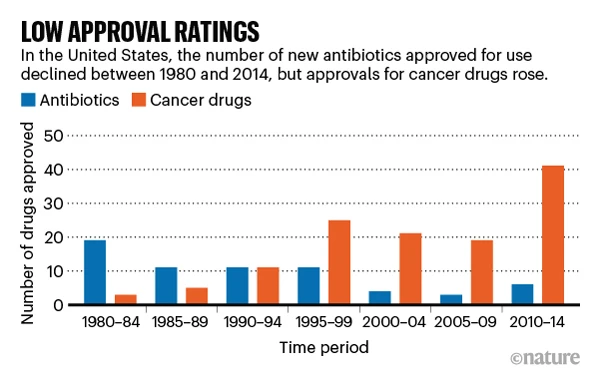WWII was one of the most influential events of the previous century. If any of the outcomes had been different, the world would be drastically different than it is today. There are many factors that contributed to the allies winning the war, one of the most influential was not the development of the atomic bomb or the industrial mobilization of America, but rather, the development of penicillin.
Penicillin was the first antibiotic ever developed that enabled the allies to fight off infection in their soldiers, enabling them to save more troops. In WWI, more troops died from infection than from war-inflicted wounds. As the allies were able to keep more of their troops on the ground, they were able to overpower the axis powers in Europe.

Following the discovery of penicillin, there was a rush to discover more antibiotics that would combat diseases caused by bacterial infections. However, as more and more antibiotics were applied, scientists began to notice that the effectiveness of antibiotic treatment began to rapidly decline: bacteria had mutated in ways that made them resistant to antibiotics.
Nowadays, many of the companies and corporations that had started out by developing antibiotics now dedicate their time and effort towards developing small molecule therapeutics to target genetic borne illnesses or oncology treatments. No corporation or investor is willing to spend billions of dollars developing an antibiotic that will lose its effectiveness over a few years once introduced to the public, or alternatively, be indefinetly shelfed by the FDA as a “break in case of emergency” antibiotic.

However, antibiotics remain the first line of defense when it comes to staving off an infection. Thereby antibiotic resistance is still on the rise, and its an increasingly pressing issue threatening public health.
One of the main issues that prevent meaningful moves to combat antibiotic resistance is the spread of misinformation by those in power. A particular case is during the anthrax panic, when politicians and influential individuals were being sent anthrax in their mail. Anthrax is a very dangerous infectious of the lungs caused by B.anthracis that is almost always fatal.
During this scare, politicians urged people to take antibiotics as a “preemptive measure” against infection. Clearly, they had no idea how antibiotics work: they kill bacteria that is already there.
By applying an antibiotic “preemptively”, you inadvertently confer an advantage on those one or two bacterial cells that — by random chance — happen to have a mutation that makes them resistant to the antibiotic. These bacterial cells will quickly take over the population, and just like that, the antibiotic is no longer effective.
Clearly there is the need for policy to educate the public about antibiotics and their importance, especially as antibiotic resistance is likely to become a major public health issue in the 21st century. However, given the nation’s response to the Covid-19 pandemic, such attempts do not look promising.
This was very interesting to read. I am familiar with the idea of antibiotic resistance but there is so much misinformation being spread about it. People don’t realize that even with all the positive benefits it provides, it has negative effects. It would be difficult to educate everyone about this because influential people are spreading misinformation. Do you think there is a specific way we can educate the public about this?
It is pretty crazy how much the public is unaware of antibiotic resistance and even how they should be used properly. The truth is that antibiotics should only really be used if necessary, not just for things like symptom relief. What I am wondering here is if you think it would be beneficial to investigate finding more antibiotics. Like if we have more variety, does that mean we have more to choose from without developing resistance? Or does it not work like that?